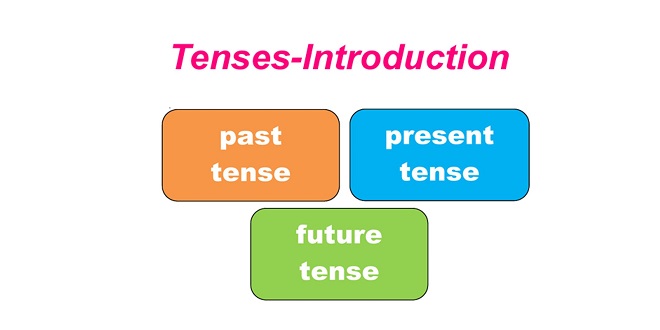Tenses and Their Types

Tenses are an essential part of English grammar, and children must be taught about the various tenses. In this article, you will learn about the types of tenses that will help you identify different types of tenses in future. Before understanding what the different types of tenses are, let’s have a look at what is tense.
A tense is a grammatical concept that helps one to understand the time reference of any action/event, i.e. whether an event has occurred in the past or present or future. Depending on the time of the event/action, tenses can be further divided into four subcategories, i.e. Simple Tense, Perfect Tense, Continuous Tense and Perfect Continuous Tense. So what are you waiting for? Let’s go through all these four types of tenses.
Types of Tenses
As we all know, tenses can be divided into three major categories depending on the time of action/event, i.e. Present Tense, Past Tense, and Future Tense. But do you know that these tenses could be further subdivided into four subcategories, i.e. Simple Tense, Perfect Tense, Continuous Tense, Perfect Continuous Tense.
Simple Tense
Simple tenses are divided into three types, i.e. Simple Present Tense, Simple Past Tense and Simple Future Tense.
The Simple Present Tense is used to express habitual actions, general truths, or even introduce quotations. For example, “The Sun sets in the West.”
The Simple Past Tense, on the other hand, is used to indicate an action completed in the past. It often occurs with adverbs or adverb phrases of the past. For example, “Granny went home yesterday.”
The Simple Future Tense talks about events/actions that are going to happen in the future. For example, “It will be raining from tomorrow.”
Perfect Tense
Perfect tenses are divided into three types, i.e. Present Perfect Tense, Past Perfect Tense and Future Perfect Tense.
Tenses that indicate completed activities in the immediate past or express past actions whose time isn’t given and isn’t definite are known as Present Perfect Tense. For example, “Yusuf has just gone out.”
Tenses that are used to describe an action or event completed before a specific time/moment in the past are known as Past Perfect Tense. For example, “I had done my chores when Amy came to visit us.”
Tenses that are used to talk about actions/events that will be completed by a certain time in future are known as Future Perfect Tense. For example, “Rahul shall have written the letter by then.”
Continuous Tense
Continuous or Progressive tenses are divided into three types, i.e. Present Continuous or Progressive Tense, Past Continuous or Progressive Tense and Future Continuous or Progressive Tense.
Tenses that are used to describe an action/event going on or in progress at the time of speaking are known as Present Continuous Tense. For example, “The baby is sleeping.”
Tenses that are used to describe an action/event going on at some point in the past where the time of action may or may not be given are known as Past Continuous/Progressive Tense. For example, “Rani was studying all night.”
Tenses that are used to talk about actions/events that will be in progress at a time in the future are known as Future Continuous/Progressive Tense. For example, “I will be staying here till Saturday.”
Perfect Continuous Tense
The Present Perfect Continuous Tense is used for an action which began sometime in the past and is still continuing. For example, “The child has been sleeping for three hours.”
The Past Perfect Continuous Tense is used for an action that began before a certain/particular point in the past and continued up to that time. For example, “At that time, Mr Joseph had been writing a poem for two months.”
The Past Perfect Continuous Tense is used for an action/event which will be in progress over a period of time that will end in the future. For example, “By next July, Sheela shall have been living in Toronto for three years.”
Now that you have an idea about the different types of tenses, it will be easier for you to identify one correctly in future.


